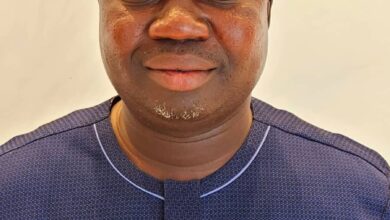Access to sanitary pads: WMA discusses ways to help the girl child

The Public Relations and Complaints Committee of the Wa Municipal Assembly (WMA) has engaged young women’s network groups on ways of mitigating the challenges facing the girl child in accessing sanitary pads.
The high cost of sanitary pads is affecting the girls emotionally and psychologically and is partly responsible for girls dropping out of school, the women’s networks have said.
Presenting their concerns to the Public Relations and Complaints Committee at the Wa Municipal Assembly hall, the Executive Director of Community Aid for Rural Development (CARD) Ghana, Ms. Abdul Rahman Linat said the unbearable price of sanitary pads in recent times for girls has resulted in school dropout and unwanted pregnancies.

Every woman needs a sanitary pad to keep herself tidy every month but most young women in the Upper West Region cannot afford it due to the astronomical increase in the price of menstrual hygiene products.
The Young Women’s Network groups are therefore engaging stakeholders and policymakers on the need to reduce the tax component on the price of sanitary pads on the back of a project dubbed “She Leads.”
Ms. Abdul Rahman Linat was convinced that the girl child will not engage in any immoral act to get money for sanitary pads if the tax component is taken off or reduced drastically.
Girls and young women participating in the She Leads project hosted a symposium with mentors to discuss issues surrounding sanitary pads on May 13, 2023, at the Wa Municipal Assembly Conference Hall.
The discussion focuses on the psycho-socio-economic repercussions and potential health risks of high sanitary pad pricing.
They urged the government to reduce levies on sanitary pads immediately in order to lessen the pain and psychological trauma associated with the struggle for sanitary pads among vulnerable girls in the country.
They also appealed to relevant parties, including the general public, to support their efforts in promoting reform in Ghana’s sanitary pad policy.
The Public Relations and Complaints Committee of the WMA held a round table discussion of these concerns to come out with recommendations that will help young girls and women manage their menstrual health.
The committee was chaired by the Presiding Member, Mr. Abdul Karim Toppie, and the members were WMA Coordinating Director, Madam Fati Issaka Kora, Wa Municipal Education Director, Wa Municipal Social Welfare Director, a representative from NCCE, a representative from Information Service,and Assembly members.
The Committee led the young women groups to pay a courtesy call on the Wa Naa to request the support of the traditional setup to forward the concerns of the vulnerable girl to policymakers for redress.

The overlord of the Waala Traditional Council, Naa Fuseini Seidu Pelpuo IV said the young women advocacy groups will be invited to table their concerns in the next general meeting of the traditional council.
Members of the Committee clarified that they had limited power to change the taxation of sanitary pads, as requested by the young women but advised that they could bring up the matter before the MPs in the region as well as the Upper West Regional Minister.
The Wa Municipal Education Director, Madam Sophia Dima has suggested to the Wa Municipal Assembly to build changing rooms for the girl child and create a pad bank to keep needy pupils in school.

According to her, this initiative will keep girls in school and also prevent the trauma they go through in accessing sanitary pads and making them comfortable in school while they are mensurating.
The Education Director blamed what the girls are going through on the irresponsibility of some parents and urged the assembly to build model changing rooms

Representing Civil Service Organizations on the committee, Mr. Kanton Salifu Issifu who is the Executive Director of CDA Ghana said the lack of access to sanitary pads by girls is a major concern and that it leads to a systematic issue of girls absenting themselves from school.
He said the committee may not have the power to change the policy on sanitary pads but he insisted that the committee should look at sustainable ways of accessing sanitary pads.
The Presiding Member urged the girls advocacy group to formally petition the assembly with their concerns while inviting them to participate in the next general meeting of the assembly.





